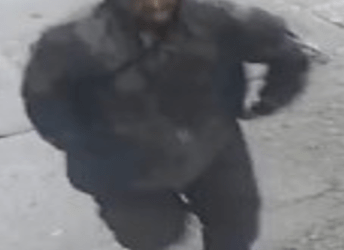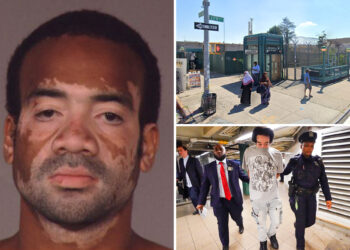More than 1,200 children accused of serious crimes in Cuyahoga County since 2020 were defended by court-appointed lawyers who lacked state-mandated qualifications, The Marshall Project – Cleveland found.
Ohio reimburses counties for private attorneys to represent people who can’t afford them. However, the taxpayer money comes with strings: Attorneys must keep up with legal education and, in some cases, have trial experience.
The qualification requirements, put in place for juvenile cases 15 years ago, are meant to ensure that youth defense lawyers have training in how juvenile law is different and the best ways to communicate with child clients.
“This isn’t just mini-adult court,” said Leah Winsberg, a former senior policy attorney with the Children’s Law Center, a nonprofit that provides legal services to children and advocates for policy reform. “Lawyers don’t just know stuff because they are lawyers. That is why we need ongoing training.”
Ignoring the standards in Cuyahoga County has contributed to distrust in the system, leading community and child advocates to publicly question whether it causes worse outcomes for kids. The state, which is working with court officials to bring them into compliance, could halt reimbursements, though that is rare.
County juvenile court officials contend that the state’s reimbursement system does not guarantee experienced representation, and that the additional requirements — no matter how well-intentioned — have created a disincentive for attorneys to take on demanding youth defense work.
“The current system also expects us to be the police of attorney ‘qualifications,’” Cuyahoga County Juvenile Court Administrator Timothy McDevitt said in an email.
In 2023, nearly 1,800 children were accused of various levels of crimes, sometimes more than once, in more than 2,800 cases, according to court records. When they can’t afford a lawyer, the court picks a county-employed public defender or a private practice attorney to defend them.
The Marshall Project – Cleveland spoke to more than a dozen young people, now all adults, about their experiences with court-appointed lawyers. Most, like Demarion Harris, who will be 26 when he’s up for parole in 2030, had no idea how the court picked their attorneys or that the attorneys sometimes lacked the required training.
Several described rushed attorneys who didn’t explain key defense options — including how they could fight to keep their cases out of adult court. Others felt that their attorneys barely made court arguments on their behalf.
Harris said his attorney, one of the juvenile court’s most frequently appointed private attorneys, advised him to forgo key hearings in his felonious assault case, which he later pleaded guilty to in adult court.
“I didn’t really understand what was really going on. He told me, ‘You’re getting bound over to the adult court system,’” Harris said. “He didn’t break down all the motions I had to go through. He didn’t tell me none of that.”
Parents of the young defendants said they often heard little to nothing from private attorneys, many of whom failed to return messages.
“You feel helpless,” said Tekisha Cunningham, whose son, Jaylan, was transferred to adult court where he pleaded guilty last year to involuntary manslaughter and other charges. “And as a parent, that’s the one feeling you don’t want to feel.”
What’s not clear is whether, overall, attorneys’ qualifications affect the outcomes for children facing crimes. Unlike adult court, that type of information for juvenile cases isn’t readily available. The juvenile court provided information on more than 450 cases where prosecutors wanted to transfer a child’s case to adult court, a legal process called a bindover. (Read our explainer to learn more about bindovers.)
Young people with court-appointed private attorneys, regardless of whether they met the qualification requirements, had their cases moved to adult court more often than cases handled by public defenders.
Court-provided defense attorneys need to be as capable as the prosecutors they face, said Gayl Branum Carr, previous president of the National Council of Juvenile and Family Court Judges.
“Our justice system is based on a level playing field, so we have a check-and-balance system,” the retired judge from Virginia said. “It’s even more important when you’re talking about a child who’s charged with a delinquent act.”
Until this year, the juvenile court operated on an honor system where attorneys self-certified on applications that they had the required legal education and trial experience. Unlike other large juvenile courts in Ohio, Cuyahoga County didn’t check. The court trusted attorneys to provide an accurate account of their credentials, said McDevitt, the court administrator. Likewise, the state relied on judges and courts to track and verify the attorneys’ qualifications.

This year, after community members and The Marshall Project – Cleveland questioned county court officials about not following state rules, the court asked attorneys to update their qualifications and reapply for case assignments. Dozens did not. In May, the court found about two-thirds of remaining attorneys lacked at least some of the required legal education or jury trial experience.
At a June meeting of Ohio’s Public Defender Commission, which oversees the system, a court official said just four qualified private attorneys remained to defend children in serious bindover cases, such as murders and aggravated robberies.
The Marshall Project – Cleveland report from March found that, for the year ending October 2023, judges or their staff gave two-thirds of court-appointed delinquency assignments to 10 attorneys. The juvenile court’s reliance on so few attorneys flouted state and local rules that prohibit judges from making or influencing assignments.
Dozens of community members and child advocates at the state’s meeting in June criticized the court’s practice of hand-picking attorneys. They demanded more scrutiny of whether it was a factor in the high number of children from Cuyahoga County who end up on adult court.
For years, Cuyahoga County has sent more children to adult court than the next four most populous counties combined, according to state data, with more than 90% of those children being Black.
“It’s demoralizing for the community to learn, as we have, that the very court judging our children is itself not following the law,” said Ginger Van Wagenen, a retired attorney and a member of Greater Cleveland Congregations, a non-partisan group of more than 30 congregations and organizations.


Members of Greater Cleveland Congregations, a non-partisan group of more than 30 organizations, held a prayer vigil before June’s Ohio Public Defender Commission meeting. The group attended the quarterly meeting in Cleveland to question and criticize Cuyahoga County’s standards for providing youth with legal representation.
At the meeting, a court official said she did not know how many children were represented by unqualified attorneys — including on current cases.
To qualify for a court appointment to represent kids in felony-level cases, attorneys need to log 12 hours of study in criminal law and procedure in the two years before the assignment. At least half of those hours need to be on juvenile delinquency topics.
The Marshall Project – Cleveland reviewed nearly 200 Ohio Supreme Court records that track continuing legal education hours completed by 46 local attorneys and found that:
-
Defense counsel fell short on educational qualifications in 79% of felony-level assignments to private lawyers.
-
The state reimbursed Cuyahoga County hundreds of thousands of dollars for assignments to attorneys who lacked qualifications. Some of the reimbursement covered work on other cases for the same clients.
-
In picking private lawyers, Administrative Judge Thomas O’Malley assigned private attorneys who turned out to lack the training requirements in 87% of felony cases and 96% of bindover cases — shares higher than any other judge.
The findings were shared with more than a dozen of the private attorneys.
Attorneys, for the most part, said they did their best to meet the qualifications, but pointed to a lack of clarity about which courses would count.
The state rules aren’t specific, leaving it to local officials to decide. Several attorneys said they believed that guardian ad litem courses, designed for an attorney who represents the best interests of children in legal matters and whose work differs from defense counsel, should count. (Find more on how we processed and analyzed the data at the end of this story.)
The state public defender’s office asks for a “good faith estimate” by an attorney or court about whether courses relate to juvenile defense, a spokesperson said.
Court officials or attorneys can contact the state for advice on whether a course would qualify. Attorneys can also ask to be exempt from the training and trial experience requirements if they prove they can provide high-quality, competent representation. None of the 46 attorneys reviewed by The Marshall Project – Cleveland asked for guidance or requested an exemption in recent years, the spokesperson said.
Four private attorneys — Edward Borkowski, William Beck, Paul Daher and Christopher Lenahan — accounted for nearly half of all felony case assignments to attorneys who lacked qualification for reimbursement, The Marshall Project – Cleveland found.
From 2020 through early 2022, Borkowski handled 26 bindover cases — more than any other court-appointed private attorney. Eighteen of the cases were transferred to adult court. Juvenile Court judges appointed Borkowski even though he did not provide the court proof of the jury trial experience required under state rules, according to the court’s review. He needed two criminal jury trials to take first- or second-degree felony cases and three for murder cases. Borkowski did not respond to multiple requests for comment.
Attorney Ian Friedman, who represents lawyers Beck, Daher and Lenahan, said each of the attorneys, who have practiced in juvenile court for decades, believed that the classes they took, including courses for guardians ad litem, satisfied the eligibility criteria in place.
“The only story to be told of these attorneys would be one of great skill and understanding in rendering outstanding legal assistance to their clients,” Friedman said. “If there are any concerns about the services afforded, the analysis should be aimed elsewhere because these attorneys have only operated at the highest levels within a Justice system that was in place long before they began practicing.”
There appears to be a recent uptick in the number of attorneys meeting the legal education requirements. But some, including Beck, Daher and Lenahan, are no longer applying to take the most serious cases, including bindovers for murder or aggravated robbery. Others, like Borkowski, are no longer eligible after the court found that they lacked jury trial experience.
Going forward, juvenile court officials said they won’t rely on attorneys to report their own qualifications. The court created a staff position to monitor qualifications and case assignments, which continue to be made by judges and their staff despite state and local rules that bar judges from steering assignments.
Judges have also shifted more cases with children accused of crimes to the county public defender’s office, which two years ago raised the issue of whether private attorneys were fully qualified.
Even as the court has increased case assignments to the public defender by more than 40% since 2022, administrator McDevitt accused the state of turning a “blind eye” to the inexperience of some public defenders.
He asked how many would be “unqualified” if held to the same standards as appointed attorneys. “From daily experience, our judges would tell you the answer to that question is: many.”
The state qualifications for attorney training and trial experience apply only to court-appointed defense lawyers. The state treats public defenders more like county prosecutors and sets comparable standards for salaries and budgets that cover training and hiring experts to help defend clients.
Twenty of Cuyahoga County’s 27 juvenile public defenders have at least five years of experience, said Cullen Sweeney, the county’s chief public defender. New attorneys receive trial court training and start by handling mostly misdemeanor or low-level felony cases. They team up for trials, Sweeney explained. Caseloads are regularly monitored to avoid overextending staff.
The public defender’s office has in-house social workers and investigators who can help bolster defense arguments. Private court-appointed attorneys can hire experts and, if judges approve, get reimbursed for those expenses. The state public defender has no record of reimbursement for experts, but has asked the court for evidence of whether juvenile judges have granted or denied such requests.
“I get that the [Cuyahoga County Juvenile] Court does not like or apparently agree with the administrative code,” Sweeney said. “We all have rules with which we do not necessarily agree. We can always advocate for a change to the law but none of us have the luxury of simply ignoring it.”
How we analyzed state reimbursement and local court data
The Marshall Project reviewed whether attorneys selected by the Cuyahoga County Juvenile Court to represent children in felony delinquency cases from 2020 through 2023 met state qualifications for case assignment and reimbursement. According to Ohio Administrative Code 120-1-10, reimbursement is contingent on the attorneys meeting minimum qualifications, like taking legal education courses every two years and taking more serious felony cases to trial in the past decade.
We compiled our review of qualifications as a database, then linked it with reimbursement records obtained from the Office of the Ohio Public Defender. These records are known as “fee bills” and represent money the state reimbursed Cuyahoga County for covering the cost of defending people who cannot afford to hire an attorney.
Using the fee bills, The Marshall Project linked more than 1,500 cases involving more than 1,200 children who were represented by at least one of 40 court-appointed private attorneys who did not meet state standards for reimbursement at the time they were appointed to the case.
First, an attorney gets assigned a case and does work on it. Then the attorney submits the bills to the court, where they are reviewed and approved by a judge. The county reviews the calculation for the attorney fee and issues payments if accurate. Monthly, the county sends the bills to the state public defender’s office to get paid out. The state reviews and records information from the batched bills and pays the county accordingly. The reimbursement process can take up to three months or more from the time the attorney finishes the case.
How we determined appointments
To determine the time of appointment, the analysis used filing dates for each case, which were provided by the court. The data provided by the Office of the Ohio Public Defender lists one case number per reimbursement, though the total amount may cover other cases for the same client.
In some instances, multiple attorneys can bill on the same case. We considered only felony-level appointments in which an attorney billed as defense counsel. Our published results considered the qualifications of any attorneys assigned to a case. In our analysis, we looked at other variations, like whether all attorneys who billed for a case were unqualified. The findings did not differ significantly and capture all children who were defended by an unqualified attorney.
How we determined qualifications
To look at whether attorneys met the state reimbursement requirements, we reviewed Ohio Supreme Court transcripts that track continuing legal education courses and training classes that attorneys take. We looked at transcripts for 46 attorneys who were assigned by the court to represent children accused in serious delinquency cases — cases that would be felonies if they were adults.
The Ohio Supreme Court tallies continuing legal education in two-year increments. We reviewed the courses attorneys took in each two-year period prior to the filing dates for cases the court assigned them.
Ohio sets criteria that these attorneys must meet in order for the county to be reimbursed with taxpayer money for the representation. Every two years, the attorneys must complete 12 course hours in criminal law practice and procedure with at least six hours focused on juvenile delinquency practice and procedure.
The state doesn’t list specific courses that meet those standards, leaving the decision on what counts to county and court officials.
Since Cuyahoga County didn’t previously check on qualifications and didn’t have a system for doing so, we consulted with other Ohio counties, including Franklin and Hamilton, which do. We also asked the Ohio Public Defender’s office for general guidance on the types of credits that should count and reviewed a similar analysis by The Wren Collective, published in December 2023. Based on those discussions we:
- Did not count credits geared toward acting as a guardian ad litem (someone who represents a child’s interests) because it is not related to providing defense in a criminal case.
- Counted all courses that mentioned the term “juvenile.”
- Counted general courses around topics such as children with psychiatric, mental health or substance abuse disorders that were not specifically focused on guardian ad litem work.



























